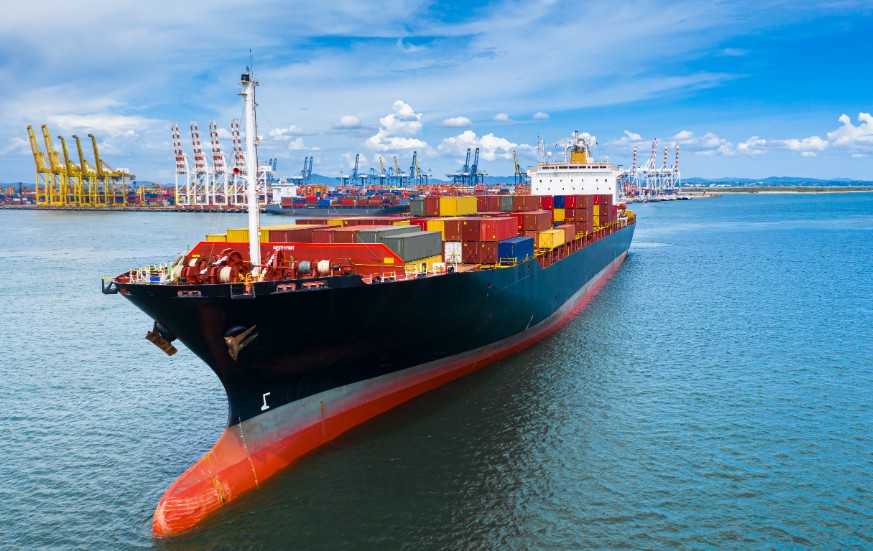
In the latest version of the IOE&IT Daily Update’s shipping round-up, we cover the ongoing effects of stormy weather in the Black Sea, the geopolitics of a hijacking off the coast of Yemen and bring details of the Thai government’s attempts to cut global shipping times.
Turkish storms
A Turkish vessel has gone missing in the Black Sea, with as many as 11 crewmembers still unaccounted for.
Reuters reported that the Kafkametler, a Turkish-flagged cargo ship, lost contact with authorities amid heavy storms that have hammered the entire coastal region.
Interior minister Ali Yerlikaya subsequently confirmed in a press conference that the vessel had sunk.
According to Tradewinds, one body has been recovered. Search and rescue efforts are ongoing but difficult conditions are said to be making operations challenging.
Another ship, the Cameroon-flagged Pallada, has also been declared sunk but all crew members have been reportedly rescued.
Hijacking in the Red Sea
A commercial vessel has been hijacked in the Red Sea by Houthi rebels.
The car carrier, the Galaxy Leader, was seized yesterday (19 November), with a spokesperson for the Houthi group, Yahya Saree, claiming responsibility for the attack.
On his Twitter/X statement, he warned that any ships owned by Israeli companies, or dealing with Israel, would be seen as “legitimate targets” by the rebel group.
The Israeli prime minister’s office however, has said that the vessel was owned by a British company, is operated by a Japanese firm and has no Israeli crew members on board.
Instead, the statement blamed Iran, which is alleged to have strong links to the rebel group and said this action put “international commercial shipping” at risk.
TradeWinds reported that the owner of the vessel is Abraham “Rami” Ungar, a prominent Israeli businessman.
Thailand makes case
Thailand is building an economic case for its proposed “land bridge”, a plan that would purportedly reduce the shipping time between the Indian and Pacific oceans by bypassing the Malacca Strait.
Last week, Thai prime minister Srettha Thavisin travelled to San Francisco to pitch a multi-billion dollar project that he said would lower shipping costs by as much as 15%.
The land bridge will require at least US$28bn and has been a long-held ambition for the Thai government, with Thavsin saying that it would “be an additional important route to support transportation and an important option for resolving the problems of the Malacca Strait. This will be a cheaper, faster, and safer route.”
Thai officials told the Loadstar that the project “had the potential to shorten transit times by an average of four days”.
The project is scheduled for completion by 2030.
Congestion remains on Panama Canal
Costs continue to soar for vessels wanting to pass through the Panama Canal, as shipping companies look for ways to avoid an ever-lengthening queue at one of the world’s most crucial shipping routes.
Fortune reported that Japan’s Eneos Group paid US$3.975m at auction for a single slot pass through the canal.
Oystein Kalleklev, CEO of Flex LNG Ltd, warned that the cost of transiting through the central American passage was getting close to US$4.5m.
Earlier this month, the Panama Canal Authority (PCA) announced further cuts to the number of ships that can pass through the Central American waterway, citing the region’s worst drought in 70 years.
The PCA said that, starting from 3 November, the number of reservation slots will drop to 25, down from 31, before declining further over the coming months.
Analysis from Splash 24/7 showed that international shipping was already looking for ways to circumvent the congested waterway, raising the possibility that no large tankers or very large gas containers could pass through at the start of the year.
Rhine closure
Parts of the Rhine River remained closed to shipping traffic due to weather conditions.
High water has caused authorities on the German waterway to pause operations as they wait for levels to fall.
The water forecasting service reported that the closures, which started on Friday, will likely continue today (20 November).
To add to the difficulties along the waterway, German broadcaster Deutsche Welle reports that the pilot of a canal freighter destroyed a canal lock by ramming the vessel into it while “drunk”.
German police said they had never seen this occur before.
Repairs could take up to a year, leading to increased wait times for shipping.



